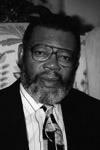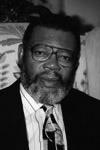
 For some, barriers only give rise to means that move them past obstacles and onto the pathway to success. Dr. Robert Lee Williams chose to push through the racial, cultural, and social barriers that existed in the early twentieth century, to become one of the most respected thinkers of our time. He used education to break down barriers and create intellectual equality for himself and Black children across the country.
For some, barriers only give rise to means that move them past obstacles and onto the pathway to success. Dr. Robert Lee Williams chose to push through the racial, cultural, and social barriers that existed in the early twentieth century, to become one of the most respected thinkers of our time. He used education to break down barriers and create intellectual equality for himself and Black children across the country.
Dr. Williams was born in Little Rock, Arkansas on February 20, 1930, to a poor family and parents with no formal education. He graduated from Dunbar High School in Little Rock at the age of sixteen before attending Dunbar Junior College for one year. Discouraged by the culture of the times and his low performance on IQ tests, he didn’t consider completing college as a viable option. So he left junior college and entered the world of employment.
Tiring of construction labor and parking cars, Williams decided to work his way through college. He earned a bachelor’s degree (cum laude with Distinction in Field) from Philander Smith College in 1953. He earned a M.Ed. from Wayne State University (Detroit) in educational psychology in 1955— a time when all graduate programs in the South remained segregated. By this time, he was confident in his ability to think and perform as clearly as his white counterparts. He decided to pursue his doctorate degree.
Despite the growing racial tension of the 60s, Williams earned his Ph.D. in clinical psychology from Washington University in St. Louis, where he is currently Professor Emeritus of Psychology and Founding Director of African American and Afro-Studies. He is also a founding member of the Association of Black Psychologists, and served as the organization’s second national president.
Dr. Williams is a long-standing advocate in the fight to improve racial and cultural inequities in the education of Black children. His research topics include Black children and the cultural bias in testing measures, and the transmission of racial attitudes to children by parents, relatives, media, and peers. He is the author of more than 60 articles and four books, and in 1973 he coined the term “Ebonics.”
Considered one of the most influential figures in African American Psychology, Dr. Williams has won many professional awards and honors, including: the Distinguished Alumnus Achievement Award (Philander Smith College), The Distinguished Psychologist Award (Association of Black Psychologists), National Leadership Award (Afro-American Family Community Services), and the Distinguished Professional Service Award (Association of Non-White Concerns), and the Outstanding Achievement Award (Phi Beta Sigma Fraternity).
